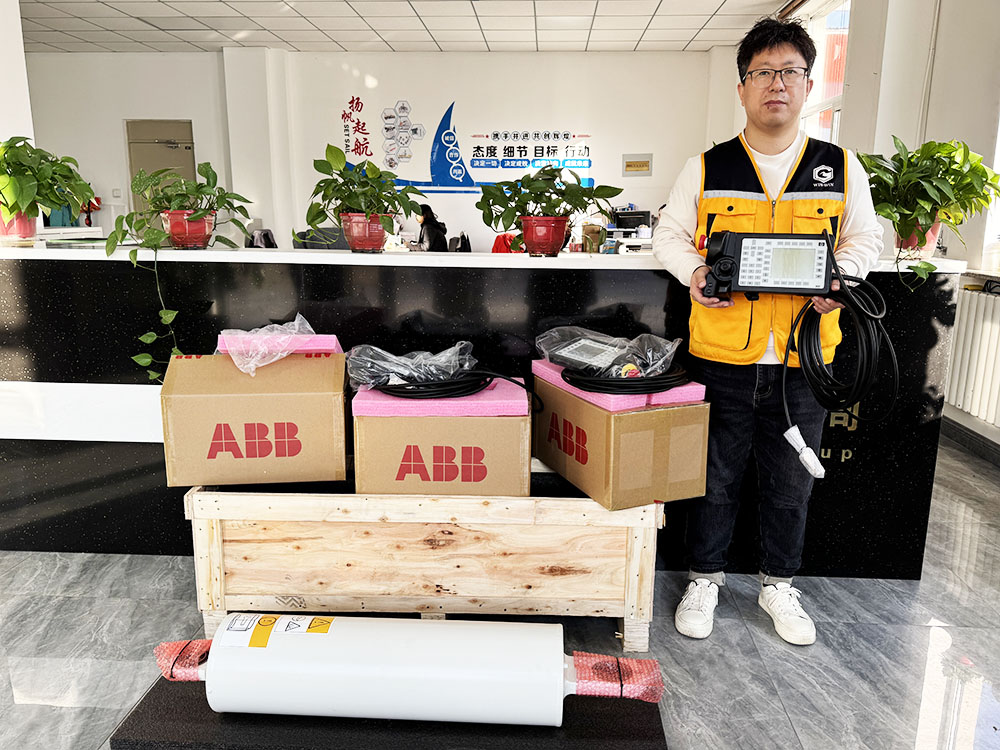Several key issues about robotic waterjet cutting machines

ABB industrial robots are widely used in manufacturing, automation, and robotics applications, but there are several key concerns and challenges in 2024:
1. High Initial Investment & Maintenance Costs
· Expensive upfront costs: ABB robots, especially advanced models with AI and vision systems, require significant investment, making adoption difficult for small businesses.
· Ongoing maintenance: Regular servicing is required to ensure precision, lubrication, and calibration, increasing operational costs.
· Spare parts availability: Some components have long lead times, causing delays in repairs.
2. Programming Complexity & Integration Challenges
· Advanced programming knowledge required: ABB robots use RobotStudio and RAPID programming language, which require skilled technicians.
· Difficult integration with older systems: Retrofitting ABB robots into legacy production lines can be challenging and costly.
· Limited plug-and-play solutions: While ABB offers modular robotic systems, customization is still required for specific applications.
3. Cybersecurity & Network Vulnerabilities
· Increased connectivity risks: Many ABB robots support cloud-based monitoring and remote diagnostics, making them potential targets for cyberattacks.
· Hacking & system breaches: Unauthorized access could lead to production downtime, data theft, or sabotage.
· Need for stronger security protocols: Companies must implement firewalls, encrypted communication, and multi-factor authentication to prevent cyber threats.
4. Safety Concerns with Human-Robot Collaboration
· Risk of accidents in high-speed operations: Traditional ABB industrial robots operate at high speeds and require safety cages to prevent worker injuries.
· Cobots (Collaborative Robots) safety concerns: ABB's YuMi and GoFa cobots are designed to work alongside humans, but sensor malfunctions or misconfigurations can still pose risks.
· Strict regulatory compliance: Companies must meet ISO 10218 and OSHA safety standards, adding complexity to deployment.
5. Maintenance & Downtime Issues
· Unexpected breakdowns can lead to costly production delays.
· Wear & tear on robotic arms: High-precision robotic joints and actuators require periodic replacement.
· Lack of skilled maintenance personnel: Many manufacturers struggle to find trained technicians to troubleshoot and repair ABB robots.
6. AI & Machine Learning Integration Challenges
· Limited adaptability to complex tasks: While ABB is advancing in AI-driven robotics, some applications still require manual adjustments.
· Training AI models for robotics is time-consuming and data-intensive.
· High computational power required for real-time AI-driven decision-making in production lines.
7. Supply Chain & Component Shortages
· Delays in robot deliveries due to global supply chain disruptions.
· Chip shortages and electronic component delays affect ABB’s production of advanced robotic controllers and sensors.
· Dependence on third-party suppliers for critical components increases risks of bottlenecks.
ABB industrial robots offer high precision, automation efficiency, and AI-driven capabilities, but challenges remain in cost, cybersecurity, safety, and integration. Continuous advancements in simplified programming, AI-driven automation, and enhanced cybersecurity will be key to addressing these concerns.
CATEGORIES
LATEST NEWS
-
The Essential Guide to ABB Robot P
This article systematically outlines the core ac
-
ABB Spare Parts Enable Perfect Aut
ABB spare parts are far more than a simple colle
-
The ABB IRB1600 in Waterjet Cuttin
In the field of industrial automation, the ABB I
CONTACT US
Contact: Win Win
Phone: +86 159 4239 2116
Tel: +86 159 4239 2116
Email: info@cncmalls.com
Add: Pacific industry zone, Shenyang, Liaoning province, China